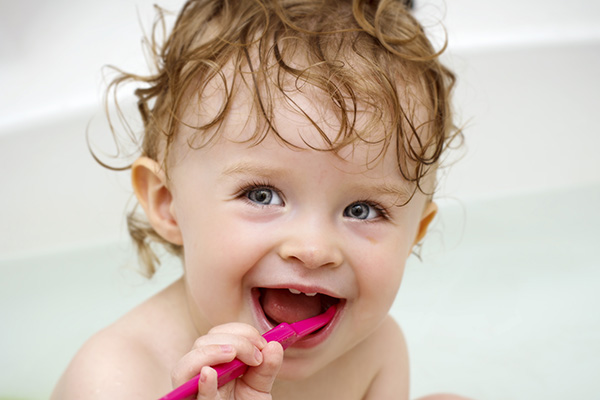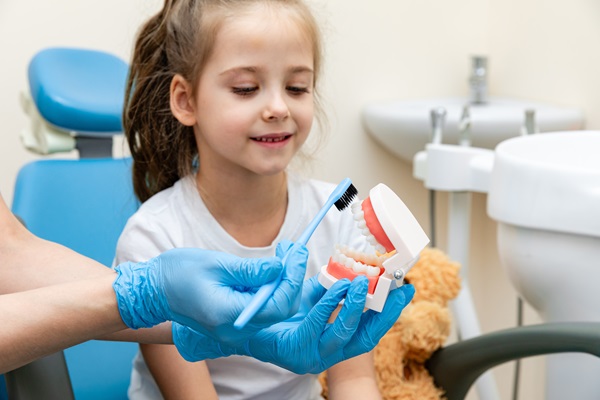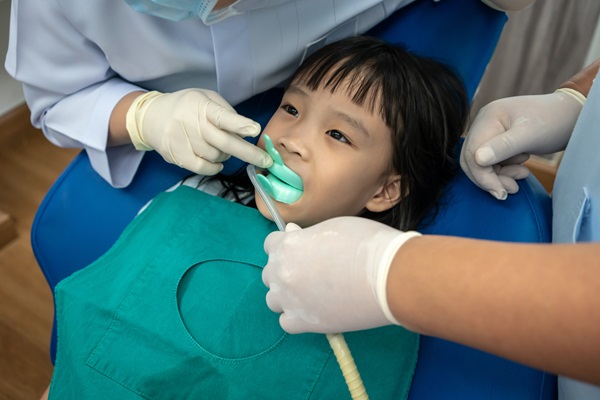 Asking your pediatric dentist about baby bottle tooth decay can help you understand this dental issue better. Many babies have this condition. As a new parent, you should do what you can to prevent this from occurring in your baby’s teeth. If you want to know more about baby bottle tooth decay, here are the facts from a pediatric dentist.
Asking your pediatric dentist about baby bottle tooth decay can help you understand this dental issue better. Many babies have this condition. As a new parent, you should do what you can to prevent this from occurring in your baby’s teeth. If you want to know more about baby bottle tooth decay, here are the facts from a pediatric dentist.
The definition
Baby bottle tooth decay is dental decay in young children and infants. ECC (early childhood caries), infant caries, and bottle mouth are other names for this dental issue. Infant caries often occur on the baby’s incisors or front teeth. It results from the high amount of sugar in formula, milk, snacks, and sweet juice boxes. A pediatric dentist would recommend regular cleaning of the child’s teeth after every drink, snack, or meal.
The causes
Frequent contact of baby teeth with sugar results in baby bottle tooth decay. Bacteria are always in the mouth. These microorganisms thrive on sugar. The waste product of bacteria is acid. These acids attack the enamel. They eat away the tooth structure and cause tooth decay.
The baby or toddler may form the habit of having a bottle or sippy cup of milk in the mouth as a sleep aid. The baby teeth then soak in the milk. A pediatric dentist knows how easy it is for sugar to coat the teeth. This then leads to the quick decay of teeth in children.
The signs
Infant caries manifest through brown or dark-colored spots on the front teeth. Worsening ECC results in swelling around the affected teeth. The baby will also feel tooth pain. Crying during feeding time can tell parents how uncomfortable their child is.
The possible complications
Baby bottle tooth decay can become a serious dental health issue. Children need healthy teeth to smile, chew, and speak. Healthy baby teeth can reserve the dental spaces for permanent teeth. Worsening infection and pain will happen if the child loses a baby tooth too soon. These can also happen if the child does not receive treatment from a pediatric dentist.
The child’s permanent teeth may not develop the right way if baby teeth have ECC. The adult teeth may also become crooked. The child may also develop eating and speech problems. Dental pain may persist even as permanent teeth set in.
Preventing baby bottle tooth decay
A pediatric dentist would not recommend letting the child sleep with a bottle of milk or juice. This will allow sugars to stay on the child’s teeth overnight. A bottle of water is healthier. Transitioning to a sippy cup by the child’s first birthday is also ideal. Avoiding long pacifier use as limiting sweets can help prevent infant caries as well. Cleaning the child’s gums after every meal or bottle with a warm, clean cloth removes plaque and food particles.
Your pediatric dentist is ready to guide you in preventing baby bottle tooth decay
Good dental care habits always start within the home. Preventing dental problems like ECC can give your child a healthy start in life. Bringing your baby to your pediatric dentist even before the baby teeth come out can maintain your baby’s oral health. As a parent, you have the power to make your child’s oral health optimal.
Request an appointment or call Nett Pediatric Dentistry & Orthodontics at 623-759-7658 for an appointment in our Phoenix office.
Recent Posts
Cavity treatment for kids is a chief concern among parents, and for a good reason. Cavities are common in children of all ages. According to the Centers for Disease Control and Prevention, over half of the kids ages 6 to 8 have had at least one cavity in a primary tooth. The good news is…
Pediatric dentistry focuses on the oral problems that occur in children. Many dental issues in kids are similar to those that occur in adults. Without proper treatment, dental problems can progress to misaligned teeth and poor oral health. If you want to maintain your child’s dental health, here are the common dental issues that pediatric…
In their early years, your youngster is still a novice in brushing and flossing their teeth, meaning that cleaning your child's teeth in that period is your responsibility. Cleaning the teeth is a skill that the child should learn. Your role is to educate your youngster on how to keep their mouths clean and healthy.…


